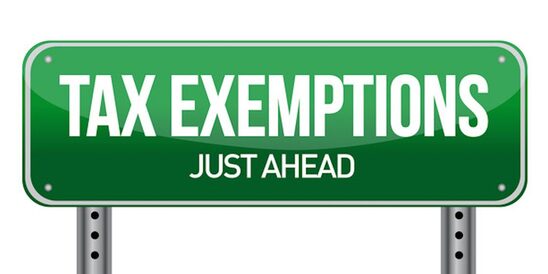|
In this blog, I'm going to give an overview of the exemptions you can receive on your property. An exemption is like a discount, lessening the tax burden of the property owner. These exemptions are determined by a number of factors. See my previous blog to get a little more detail or contact your Central or County Appraisal District.
The the property tax invoices will come out soon from the appraisal districts, so I wanted to provide some information on this topic, to help you understand what exemptions are. I live in Wise County Texas and our appraisal district website provides everything the residents need to know or the forms they need to use on their website https://www.wise-cad.com/ There is a complete list of exemptions, along with a link to the state tax code. If you live in another county or state, you can probably find what you need online. If not, please reach out to the tax office and they can tell you how to locate the appraisal district information. On the Wise County CAD website, the Form Tab will be in the green banner. This is where all of the forms are listed for each exemption and each form has the description of qualifications for that specific exemption. The website also shows when can you file for an exemption. You can file the form immediately after you purchase the property and the title company may provide the form at closing for you. However for the exemption to be in affect, the appraisal district must have it by Jan. 1 of the following year to receive the exemption for the new year. Many of the common exemptions are one time applications, but others must be filed annually. For Wise county, there is a table provided on the website under Appraisal Information tab, then click on Property tax exemptions, and see page 9 of tax code document. The amount of the allowable exemption or discount is be determined by each taxing entity. For a complete table of exemptions, go to page 17 of the same property tax code. If you wish to see if you have the exemptions without having to wait on your tax invoice, in Wise County you can go to http://iswdataclient.azurewebsites.net/webindex.aspx?dbkey=wisecad&time=202009231301003. You can search the database by name, legal description, or address. This will show you your value, the invoice and all of the other information you will receive on your invoice. The most common exemption is the Homestead exemption. To quality, the property must be the primary residence of the owner. Manufactured homes, on land can also qualify for a homestead exemption. People with more than one property, must classify only one as their homestead. Even if you live between the two properties throughout the year. If the properties are in different states, you will need to contact each appraisal district where the properties are located to help determine your primary residence and possibly see if you can get other exemptions on the secondary address. Senior citizen exemptions are called ‘Over 65’ exemption and at least one of the owners must be over 65. If that person passes, then the remaining spouse may still qualify for the exemption if they are over 55 at the time of death and live in the home. The exemption does not pass to surviving children who may decide to live in the home. To receive the Disabled exemption, the disabled person must meet the definition of disabled for the purpose of payment of disability insurance benefits under the Federal Old-Age, Survivors and Disability Insurance Act.28. Again, for more information on this exemption, visit your appraisal district website. The Veterans exemption only extends to disabled veterans or the surviving spouse of a veteran. For the disabled veteran, it may be a partial or full exemption, depending on level of disability. More detail is provided on the website and again, if you look at the form online, it provides you with the information you need to qualify. While these are the most common exemptions, there are a few others you can receive, just check the website or your appraisal district for a complete list. Now let’s talk about Ag or Agricultural exemptions. In Wise County, over the last several years, many of the larger tracts of land have been subdivided into ‘ranchettes’ or smaller acreage tracts. They are usually Ag exempt before being subdivided. Then when the people purchase the smaller tracts, the new owner must do something to maintain the exemption. If they don't, they could actually lose the exemption. So it is very important to make sure you determine how you are going to maintain that exemption when you purchase it. Different counties have different limitations, but here you must have a minimum of 5 acres of raw land or 6 acres if you have a home on the land, to maintain the exemption. If you do not do something to keep the exemption, it takes you 5 years to get it back and it isn’t an easy process. You have to prove you did something to receive the exemption during those 5 years. Ag exemptions-must be filed between January 1 and May 1 and there are minimums of what you can and cannot do or have on the property. So make sure to look up and be fully aware of all of that information before you purchase your property. I had a client who was selling 20 acres of raw land that he had purchased a few years prior. Before the land was divided up to sell, it was part of a large ranch and had ag exemption for cattle. My client bought 20 acres, not fenced and no water source, so he chose to put bees on his property. He would go out weekly to make sure the bees had what they needed and it worked fine for him. It was sort of fun, because a local beekeeping club taught him how to work the bees and would also go out to help harvest the honey. There are all kinds of exemptions. Livestock, exotic animals, beekeeping, crops (hay, etc.), orchards or vineyards, wildlife, just to name a few. The wildlife exemption can be fun if you have the acreage. Provide a natural habitat, have feeders and a few other things, then just sit back and watch the deer and other wildlife come in. There is an issue that can arise if you lose your exemption that is called "rollback taxes." There is a law in place that if the land use (which is what the exemption is for) is changed from agricultural to another type, say residential or commercial, then you may have to pay roll-back taxes. When an Ag exemption is in place, the property owner receives a huge discount on property taxes every year. It is literally pennies compared to what you would be required to pay without the exemption. So if don't do something to maintain this exemption, and the appraisal district changes your acreage to another form of land use, you may have pay back the discount you received for the previous 3 years. For example if you received a discount of $5,000.00 per year, you would owe $15,000.00 to the taxing entities. You will also owe interest on that money. In Texas it was recently changed from 7% to 5%. Now this is a very simplistic way of explaining a very complicated issue, so it is your responsibility to understand the implications of having an Agricultural exemption fully. For complete details on Ag exemptions, again go to the website or contact the appraisal district.
0 Comments
Leave a Reply. |
Archives
March 2024
Categories |


 RSS Feed
RSS Feed
